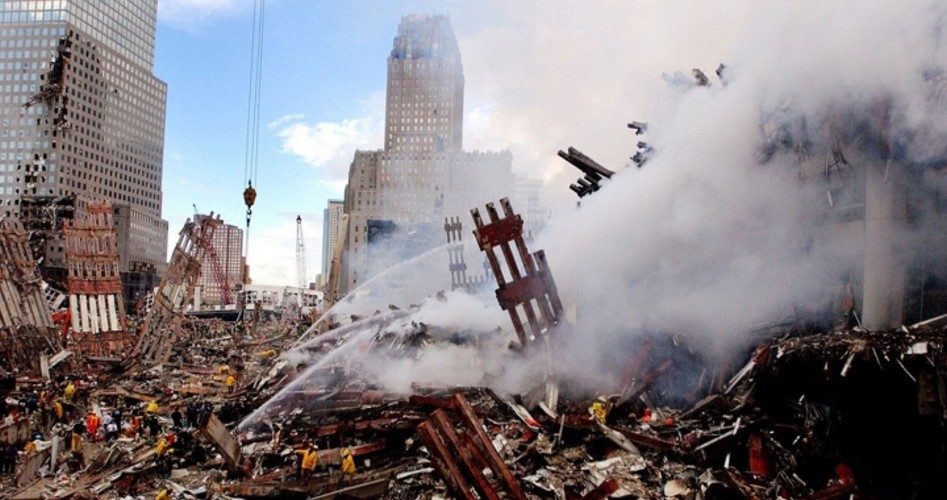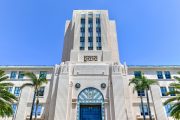
President Trump’s executive order to suspend the highly controversial (and highly dangerous) refugee program has been stymied by the courts. It has been called an unreasonable and unconstitutional “Muslim ban” by its opponents, who celebrate the Ninth Circuit Court of Appeals’ decision to leave a lower court’s restraining order in place. But is it unreasonable or unconstitutional? Is it even a “Muslim ban”?
First, considering that the legal framework on which the order rests has never been considered either unreasonable or unconstitutional, it seems more than a little ludicrous to assign the execution of those laws either of those titles. Second, the order does not use the word “Muslim” even once. It is a “ban” on traveling to this country from seven countries known for being hotbeds of terrorism. Much of that terrorism is state-sponsored or at least state-approved.
The seven nations listed in President Trump’s order have Muslim majorities, but Trump’s detractors have been the ones to make this an issue, while ignoring the fact that many other countries with Muslim majorities (Indonesia, Pakistan, India, Bangladesh, Nigeria, Egypt, etc.) were not part of the travel ban.
Given the lengths to which Trump’s detractors have gone to pretend that the Muslim world is all peace and harmony, it is clear that they protest too much. In fact, a report released last week shows that “72 individuals from the seven countries covered in President Trump’s vetting executive order have been convicted in terror cases since the 9/11 attacks.”
The report — published by the Center for Immigration Studies — states:
A review of information compiled by a Senate committee in 2016 reveals that 72 individuals from the seven countries covered in President Trump’s vetting executive order have been convicted in terror cases since the 9/11 attacks. These facts stand in stark contrast to the assertions by the Ninth Circuit judges who have blocked the president’s order on the basis that there is no evidence showing a risk to the United States in allowing aliens from these seven terror-associated countries to come in.
In June 2016 the Senate Subcommittee on Immigration and the National Interest, then chaired by new Attorney General Jeff Sessions, released a report on individuals convicted in terror cases since 9/11. Using open sources (because the Obama administration refused to provide government records), the report found that 380 out of 580 people convicted in terror cases since 9/11 were foreign-born. The report is no longer available on the Senate website, but a summary published by Fox News is available here.
So, the Ninth Circuit Court’s protestations duly noted, the fact remains that — as the report states — “The United States has admitted terrorists from all of the seven dangerous countries.” The report lists the breakdown of those convicted of terrorism as follows:
Somalia: 20
Yemen: 19
Iraq: 19
Syria: seven
Iran: four
Libya: 2
Sudan: one
At least 17 of those convicted terrorists were here as refugees, three were here on student visas, and one was here on a diplomatic visa. At least 25 became U.S. citizens, another 10 were here as lawful permanent residents, and four were here illegally.
And those are just the ones convicted. Since a 100-percent conviction (not to mention a 100-percent apprehension rate) is unimaginable, it is reasonable to conclude that many others are here as terrorists from those same countries and are still at large, flying under the radar, planning their next attack. As The New American reported last week:
Obama’s State Department quietly halted all refugees from Iraq for a period of six months after it was discovered (to the surprise of no one paying attention) that terrorists who had actually fought against U.S. soldiers in Iraq had gained entry in the United States as “refugees” and were planning attacks here.
Those terrorists — from Iraq — were undoubtedly among the 19 Iraqis listed in the report who were convicted of terrorism.
And as President Trump is prepared to appeal both the restraining order instigated by Washington and Minnesota and the Ninth Circuit Court’s decision to leave that order in place as this case winds its way through the courts, it is important to note that the Ninth Circuit Court is the most overturned court in the nation. For instance, in 2012, the U.S. Supreme Court overturned a whopping 86 percent of the cases it reviewed from the Ninth Circuit Court. That could mean that if this case makes it to the Supreme Court, it would stand a great chance of being decided in the Trump administration’s favor.
The extreme liberal bias of the Ninth Circuit Court is a long-standing tradition, leading many to derisively refer to it as the Ninth Circus Court of Appeals. This case is par for the course and has lent itself to a firm condemnation from Judge Andrew Napolitano who is now a Fox News senior judicial analyst. Judge Napolitano said recently that the court’s decision to allow the restraining order to stand was “precisely the wrong thing” for it to have done. He also said that it was “profoundly wrong” because “it essentially consists of substituting the judgment of three judges for the President of the United States, when the Constitution unambiguously gives this area of jurisdiction –– foreign policy –– exclusively to the president.”
Given that “the Constitution unambiguously gives this area of jurisdiction –– foreign policy –– exclusively to the president” as Judge Napolitano said, President Trump does not have to wait — with America in peril — to win this battle in the courts. He has, as World Net Daily pointed out, the authority to “simply lower the ceiling on refugee resettlement for fiscal 2017, which began four months ago on Oct. 1.” As that article goes on to say:
Trump has already partially exercised this option in his first executive order when he lowered the annual ceiling from 110,000 refugees set by Obama to 50,000. Interestingly, this was the one part of his executive order that was not struck down by the lawsuits filed in Washington state and Minnesota.
Given that President Trump is a man who is willing to explore all options, and has said he will do so in this case, another plan which is not open to the idiotic review of the courts may be well in place by the time the Supreme Court gets its chance to — once again — reverse another decision of the Ninth Circuit Court. Since the very safety of the nation is at stake, it is a good thing that the president has other legal options.
Photo: aftermath of 9/11 terrorist attack on World Trade Center




